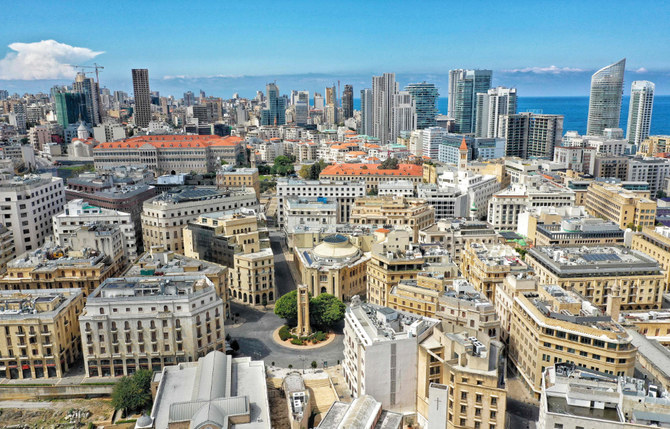
by arabnews.com — Najla houssari –– BEIRUT: Officials at an historic Lebanese golf club have launched a drive to keep it up and running amid the country’s economic meltdown. Karim Salam, president of the Golf Club of Lebanon in south Beirut — known for its elite client base — told Arab News that innovative ways to attract a new generation of members were being pursued. After three years of struggling to survive the financial crises gripping the nation, club bosses want to tee it up for the future. “We are trying to change the club’s policies from targeting elite clients to attract members of the public who are able to pay a reasonable fee to benefit from our services,” Salam said. As part of the initiative, the club, that has played host to major international tournaments, has been running free courses to introduce the game to children aged between six and 12 from public and private schools. “We were the first Arab country to organize such courses in 2016. We are now providing reasonable and encouraging fees to attract a new generation to the club,” he added.
With basketball, tennis, and swimming far more popular in the country, Salam noted that the Lebanese Golf Federation was keen to further promote the game. The club was also encouraging people with disabilities to take up the sport. Salam said: “Our coaches carry the equipment, needed to teach the children, to schools and spend hours teaching them. We decided to transport children with disabilities who want to learn golf in specially equipped buses to the club. “I did not imagine that such a step would make children with disabilities so happy. They take the training very seriously and are good at the game. They also consider that what we offer them is an opportunity not available elsewhere. “The determined approach of the children to the game makes us confident that we will be able to represent Lebanon in the Paralympics,” he added. Set up in 1923, the club occupies one of the last green spaces in Beirut — along with the campus of the American University of Beirut — overlooking the Mediterranean Sea. The 18-hole course covers around 420,000 square meters and meets international specifications, and the site includes 18 hotels, a pool, seven tennis courts, and areas for teaching taekwondo, football, squash, chess, and other activities. Salam described the club as “a national edifice of social, environmental, economic, tourism, and sports importance.”
Many Lebanese institutions, such as the famous five-star Le Bristol and Le Vendome hotels in Beirut, have succumbed to the country’s economic collapse. Salam said: “Our clients are no longer the same. The crisis prompted some of our clients to leave the country and the number of those who used to visit us from abroad has declined. “There are other clubs and resorts scattered in Lebanon that have attracted our clients.” Former Lebanese ministers and deputies, a Turkish foreign affairs minister, NATO chief, and other top Lebanese political, business, and social figures have been among those to frequent the club.
Run by third-generation employees who provide for 120 families, the club’s membership has fallen by 50 percent while operational costs have doubled. “We use the club’s revenue to pay the employees’ salaries, and the operational cost comes in second. At the height of the economic crisis, employees waived their salaries so the club could survive. “We are trying to avoid large deficits and unfortunately, we don’t have any surplus. Now we are working on keeping the club alive,” Salam added.
His father, Salim, a prominent figure in Beirut who occupied public positions in Lebanon, wanted the capital to have its own golf club. It was initially built on an abandoned strip of government-owned land next to the airport, but shareholders later invested to expand the site. Similar to other institutions in Lebanon, the establishment of the golf club required securing a sectarian balance. The Cabinet issued an establishment decree in 1963, along with one for the setting up of the Automobile and Touring Club of Lebanon in Jounieh. “At the time, it had been agreed that the two establishments would not be run by the government, but rather built by contractors and run by non-profit associations, and that the surplus of each club must be invested in the same establishment,” Salam said.
The club has withstood decades of war in Lebanon, and nearby terrorist bombings, and last year, controversial plans to build a power plant on the site were defeated only after the intervention of the prime minister. The Golf Club of Lebanon is now the only one remaining in the country after the closure of the three other main courses over the last 10 years.



